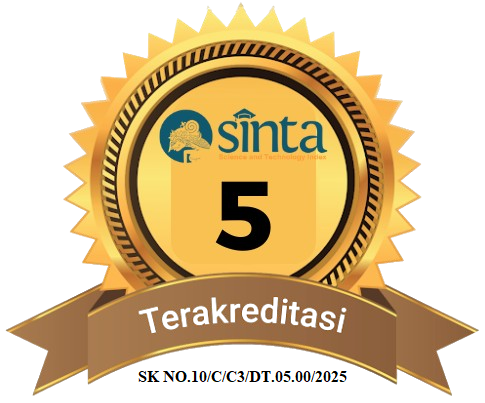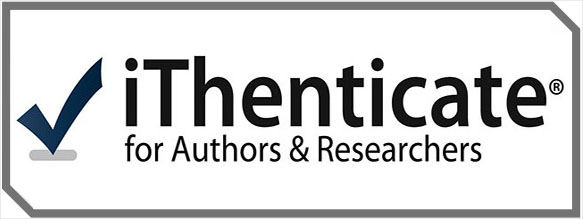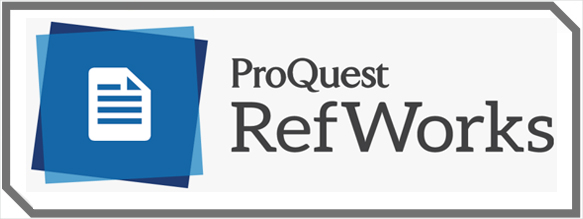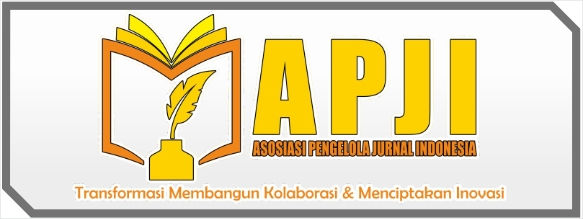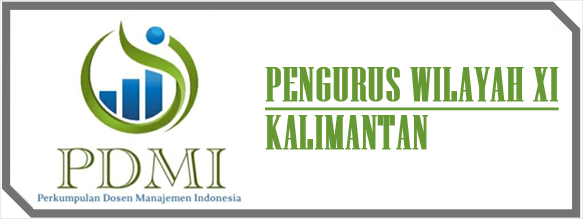Enhancing Civil Servant Performance Through Digital Literacy and Organizational Adaptability
DOI:
https://doi.org/10.62394/projmb.v4i1.197Keywords:
digital literacy, organizational adaptability, civil servant performance, digital transformation, public sector reformAbstract
Purpose – This study aims to examine how digital literacy and organizational adaptability jointly influence civil servant performance within the context of Indonesia’s digital transformation agenda. While digital tools are increasingly integrated into public sector operations, limited attention has been paid to the interaction between individual digital competencies and institutional adaptability in determining work effectiveness. This research contributes to a more comprehensive understanding of civil servant performance by addressing this interdependence.
Design/method/approach – A qualitative exploratory case study approach was employed, involving semi-structured interviews with 12 civil servants from two government institutions—one at the national level and one at the regional level. The participants were selected purposively based on their active involvement in digital administrative processes. Thematic analysis was conducted to identify patterns related to digital skill application, organizational support, and performance outcomes.
Findings – The findings indicate that digital literacy enhances civil servants’ efficiency, confidence, and engagement, but its impact is highly contingent upon the organizational environment. Adaptive institutions that promote learning, flexibility, and supportive leadership enable civil servants to fully utilize their digital competencies. In contrast, rigid bureaucracies with limited innovation capacity tend to inhibit performance, even among digitally skilled employees. The interplay between individual and organizational factors emerges as a critical determinant of effective public service delivery.
Implications – The study provides practical insights for policymakers and public managers seeking to improve civil service performance. It recommends integrated capacity-building strategies that simultaneously enhance digital skills and foster adaptive institutional cultures. Theoretically, it advances public administration literature by linking micro-level competencies with macro-level organizational dynamics.
Novelty/Originality – This research offers original contributions by exploring the dual role of digital literacy and organizational adaptability in a developing country context, an area that remains underexplored. It bridges individual and institutional perspectives, offering a holistic lens on performance enhancement in the digital era
Downloads
References
Abd. Kadir, I., & Rumaisha Alwi, Z. (2023). Enhancing The Influence of Organizational Communication on The Performance of Local Government Officials in Tidore Islands. PROCURATIO: Jurnal Manajemen & Bisnis, 2(2), 86–93. https://doi.org/10.62394/projmb.v2i2.63
Ahmad, E., & Chongvilaivan, A. (2024). Digital Transformation of Multilevel Tax Policies and Administration for Resilience and Sustainable Growth. Asian Development Bank.
Authar, N., Rasyid, R. A., Saputri, T., Basuki, E. P., Ahmadah, N. H., Putri, T. A., & Putri, N. M. A. A. (2025). Pengembangan Keterampilan Bahasa Inggris dan Literasi Digital bagi Komunitas Lokal melalui Pelatihan Berbasis Media Sosial. BARAKTI: Journal of Community Service, 3(2), 74–82.
Burns, T., & Stalker, G. M. (1961). Mechanistic and organic systems. London: Tavistock Publications.
Criado, J. I., & Gil-Garcia, J. R. (2019). Creating public value through smart technologies and strategies: From digital services to artificial intelligence and beyond. International Journal of Public Sector Management, 32(5), 438–450.
Erdat, Y., Ceren, R. E. S., Ozdemir, L., Uslu-Sahan, F., & Bilgin, A. (2023). Influence of technical, cognitive and socio-emotional factors on digital literacy in nursing students assessed using structural equation modeling. Nurse Education Today, 130, 105937.
Gil-García, J. R., & Pardo, T. A. (2005). E-government success factors: Mapping practical tools to theoretical foundations. Government Information Quarterly, 22(2), 187–216.
Jameaba, M.-S. (2020). Digitization revolution, FinTech disruption, and financial stability: Using the case of Indonesian banking ecosystem to highlight wide-ranging digitization opportunities and major challenges. FinTech Disruption, and Financial Stability: Using the Case of Indonesian Banking Ecosystem to Highlight Wide-Ranging Digitization Opportunities and Major Challenges (July 16 2, 2020).
Latupeirissa, J. J. P., Dewi, N. L. Y., Prayana, I. K. R., Srikandi, M. B., Ramadiansyah, S. A., & Pramana, I. B. G. A. Y. (2024). Transforming public service delivery: A comprehensive review of digitization initiatives. Sustainability, 16(7), 2818.
Martínez-Bravo, M. C., Sádaba Chalezquer, C., & Serrano-Puche, J. (2022). Dimensions of digital literacy in the 21st century competency frameworks. Sustainability, 14(3), 1867.
Matlala, L. S. (2025). E-governance in South Africa: barriers and enablers of virtual evaluation in the public sector. Insights into Regional Development, 7(2), 84–108.
Melati, Sari, D. C., Wardhana, A., Darwin, M., Sulaiman, E., Rahmawan, G., Ridwan, M., Hastutik, S., Poltak, H., & Sangadji, S. S. (2021). Manajemen Pemasaran. Media Sains Indonesia.
Ndou, V. (2004). E-government for developing countries: Opportunities and challenges. Electron. J. Inf. Syst. Dev. Ctries., 18(1), 1–24.
Özturan, N., Ören, A. Ş., & Çakar, S. Ş. (2024). Digital Innovations and Market Dynamics of Tourism Businesses in Turkey. Aurora: Journal of Emerging Business Paradigms, 1(1), 12–17. https://doi.org/10.62394/aurora.v1i1.107
Rafa’al, M., & Sangadji, S. S. (2023). Digital Transformation of the Hotel Industry “Theories, Practices, and Global Challenges.”, Jorge Marques, Rui Pedro Marques, Springer (2023). Elsevier.
Rantanen, T., Juujärvi, S., Silvennoinen, P., & Järveläinen, E. (2023). Haavoittuvassa asemassa olevien ryhmien digitaalinen syrjäytyminen sosiaali-ja terveysalan osaamisen haasteena. Ammattikasvatuksen Aikakauskirja, 25(3), 50–69.
Rizki Ramadhan, M. A., Sastrya Wanto, H., & Wisnujati, N. S. (2024). Unlocking Consumer Satisfaction: How Product Quality, Service Quality, and Preferences Drive Hydroponic Lettuce Purchases. Aurora: Journal of Emerging Business Paradigms, 1(2), 60–74. https://doi.org/10.62394/aurora.v1i2.139
Sangadi, S. S., & Handriana, T. (2023). The role of pleasure to improve tourism education (Edited By Alejandra Zuccoli, Maximiliano E. Korstanje), ISBN: 978-3-031-21580-3. Book Link: https://link. springer. com/book/10.1007/978-3-031-21580-3. Elsevier.
Sangadji, S. S. (2021). Book Chapter Manajemen Pemasaran. https://osf.io/preprints/6crjs/
Sangadji, S. S., Manullang, S. O., & Tahirs, J. P. (2020). Identification Of Business Knowledge Management Strategy: Using The Research Skills Development Framework Concept.
Sørensen, E., & Torfing, J. (2011). Enhancing collaborative innovation in the public sector. Administration & Society, 43(8), 842–868.
Supriatin, F., Marliana, I., S. Sangadji, S., Afkar, Paerah, A., & Dharta, F. (2022). Metodologi Penelitian. Cendikia Publisher. https://doi.org/10.31219/osf.io/ywemh
Van Deursen, A. J. A. M., & Van Dijk, J. A. G. M. (2014). Digital skills: Unlocking the information society. Springer.
Wadipalapa, R. P., Katharina, R., Nainggolan, P. P., Aminah, S., Apriani, T., Ma’rifah, D., & Anisah, A. L. (2024). An ambitious artificial intelligence policy in a decentralised governance system: evidence from Indonesia. Journal of Current Southeast Asian Affairs, 43(1), 65–93.
Weick, K. E., & Sutcliffe, K. M. (2001). Managing the unexpected (Vol. 9). San Francisco: Jossey-Bass.
Wisnujati, N. S., Kamal, M., & Sangadji, S. S. (2024). Metaverse Integration in Business: Strategies for Competitive Advantage. Aurora: Journal of Emerging Business Paradigms, 1(1), 30–37. https://doi.org/10.62394/aurora.v1i1.109
Downloads
Published
How to Cite
Issue
Section
License
Copyright (c) 2025 Syahrir, Rida Anjani, Zulaikha Rumaisha Alwi

This work is licensed under a Creative Commons Attribution-ShareAlike 4.0 International License.


